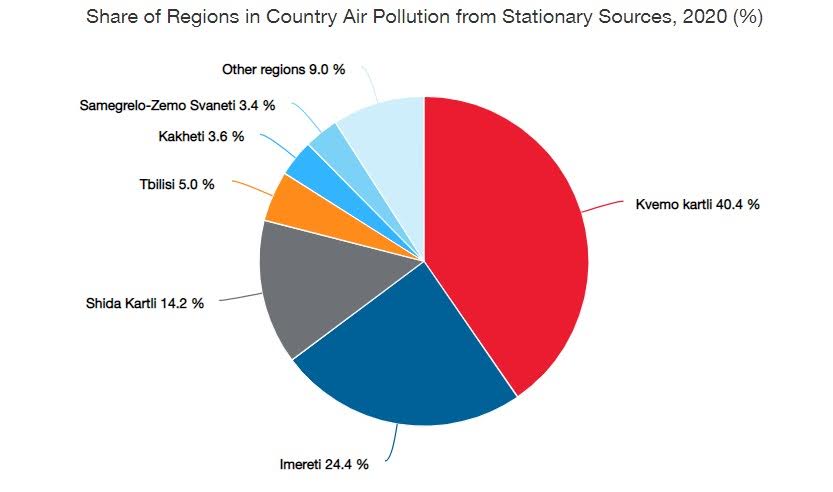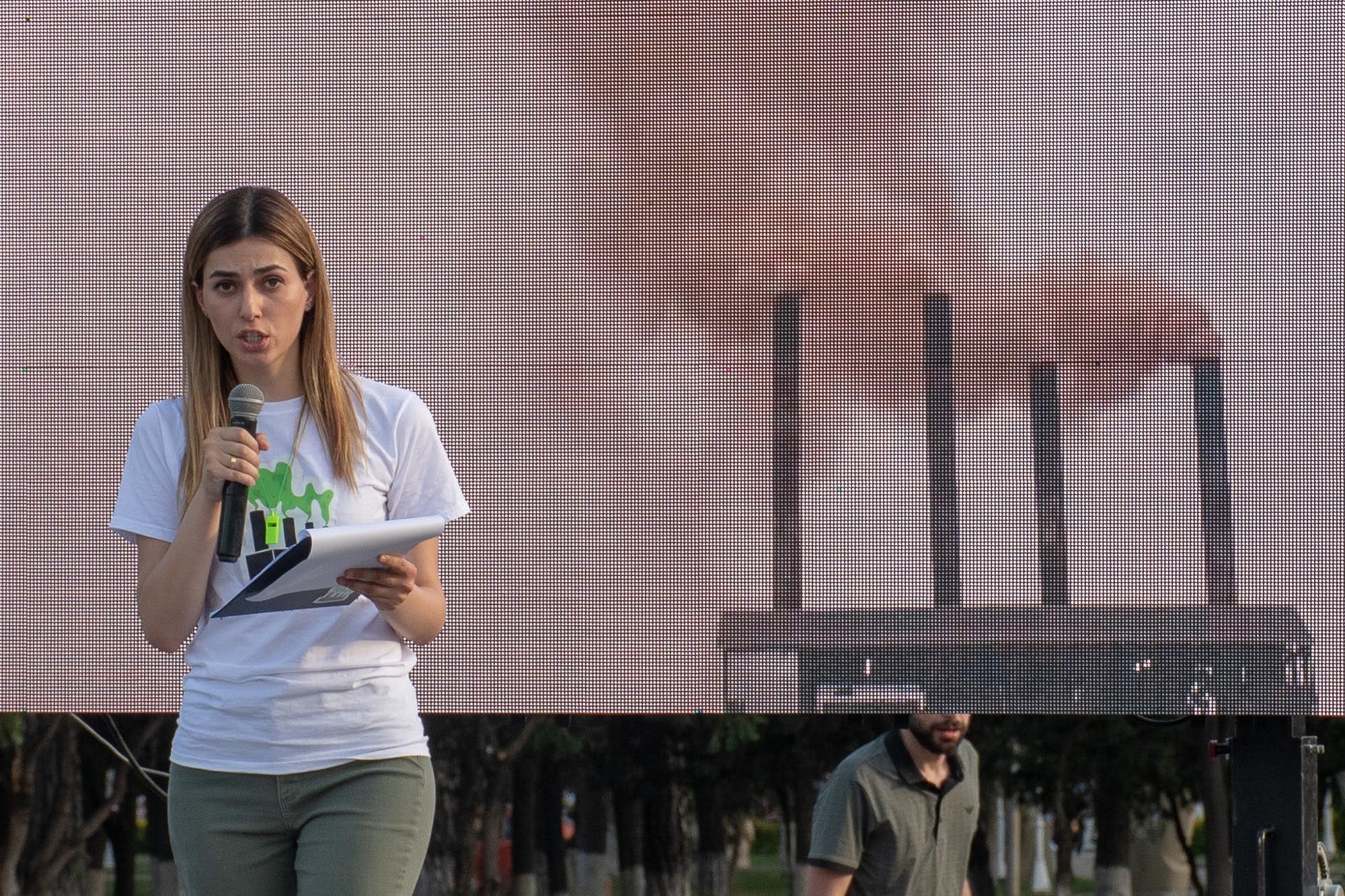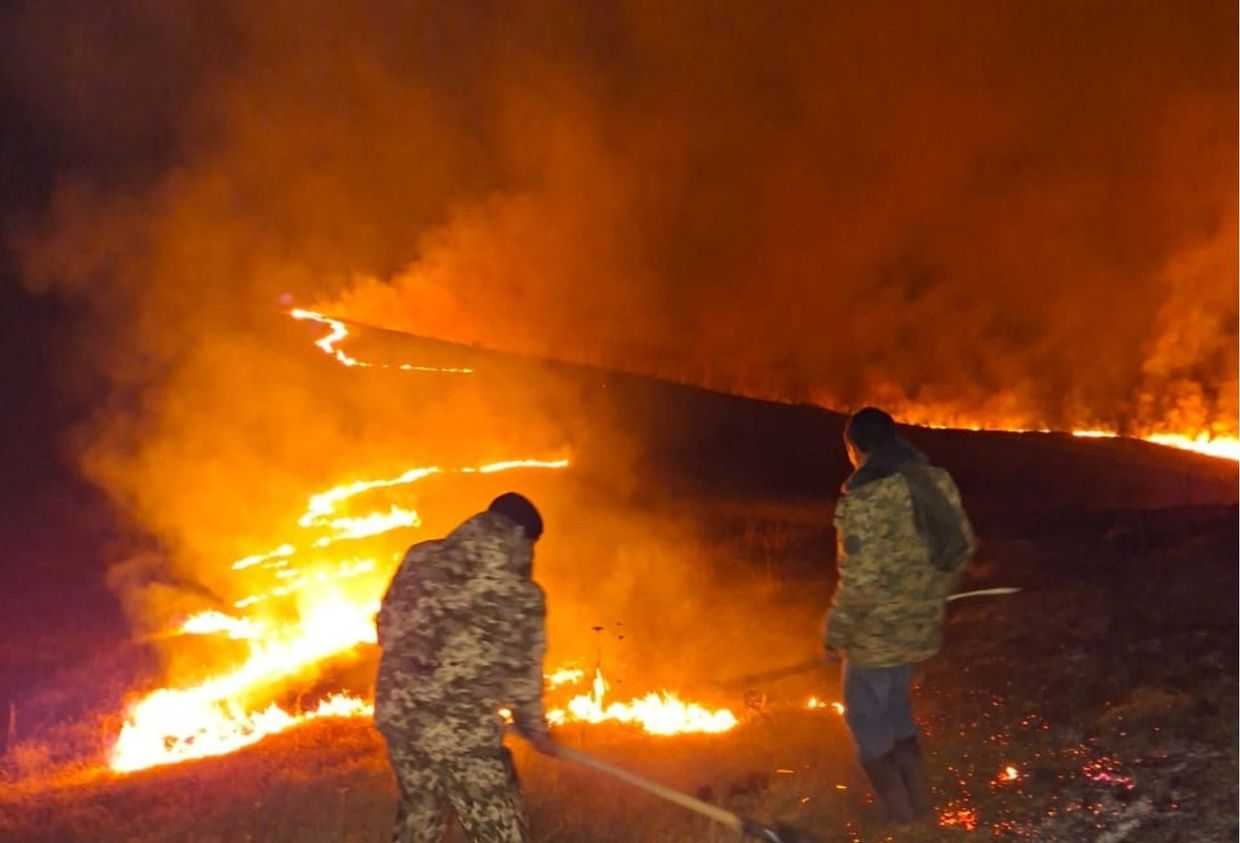
Despite pushing lawmakers to amend legislation to counter industrial air pollution in Georgia, activists in Rustavi are now fighting for the rules to be implemented.
Activists and residents from Rustavi gathered on Sunday in the city centre to protest air pollution. The demonstration coincided with World Environment Day, marked annually globally to raise awareness of environmental issues, including air pollution.
The rallygoers marched through Merab Kostava Avenue blocking traffic in one direction, before eventually stopping at Freedom Square.
The organisers demanded the implementation of legislation against air pollution that Georgia adopted a year ago, focusing on the installation of sensors to detect dangerous levels of emissions from the city’s factories.
Gavigudet (‘we have been suffocated’), the grassroots group behind the gathering, called on the Ministry of Environment to come up with a clear plan to push local factories to install air filtering and self-monitoring systems.
They also demanded that the City Hall adopt a more proactive approach to tackle air pollution by following the city’s 2020–2022 action plan.
The global movement to address the human-caused effect on the climate has struggled for years to energise popular demands for policy changes. But many local residents of the small city of Rustavi, with around 129,000 residents, do not need to be convinced as they have felt a lack of environmental control with their own lungs.

‘The station that measures the quality of the air in Rustavi shows that during 270 days out of the year we breathe “bad” or “very bad” quality air’, said Gavigudet leader Tinatin Maghedani, referring to the data and categories provided by the Environmental Ministry themselves.
Maghedani told OC Media that they had some positive cooperation with the lawmakers, but that street demonstrations still mattered to push both the authorities and enterprises to follow Georgia’s new regulations.
‘As soon as we announced the demonstration, we got a letter from the ministry saying they had started communication with the factories and they would get back to us about the meetings’, Maghedani said.

‘We are not saying that there is no improvement but the speed [at which they are implemented] is the problem now, so with these demonstrations, we are trying to speed up the process.’
‘We have a constitutional right to request a safe environment for ourselves and for the people we love’, Maghedani said shortly before hitting the streets.
Modern Rustavi has been an industrial city since its inception during the late years of Soviet dictator Joseph Stalin.
[Check out a photo story from OC Media: In pictures | Rustavi: The city of factories]
The city, located 20 kilometres southwest of Tbilisi, has among the most polluted air nationally, especially with nitrogen dioxide, and particulate matter — airborne particulates usually classified as smaller than 2.5 or 10 micrometres in diameter that are known to cause a number of medical conditions, including respiratory health problems.
Unimplemented legislation
Georgian lawmakers amended the country’s Law on Ambient Air Protection last year, partly an achievement of Gavigudet’s campaign for clean air.
The changes adopted in March 2021 — in force on paper since last June — mandate that industrial operators install monitors in chimneys to automatically signal dangerous levels of emissions to supervisory bodies.
According to Gavigudet’s Tinatin Maghedani, as of mid-April, only one out of 15 factories in Rustavi’s industrial zone have around-the-clock sensors for pollutants that meet the requirement.
Among the biggest local factories operating in Rustavi are Geosteel, a steel plant, Rustavi Azoti, which produces fertilisers, and Russalloys, a producer of ferroalloys.

Organisers of the 5 June rally in Rustavi showed on a big screen a video compilation of various government officials vowing to address air pollution in a timely manner. This included statements by Rustavi Mayor Nino Latsabidze.
The Ministry of Environment, the Department of Environmental Supervision under it, and Rustavi City Hall did not immediately respond to OC Media’s requests for comment on what was being done to address air pollution.
In the 2022 Environmental Performance Index (EPI), a joint Yale University and Columbia University project, Georgia ranked 124th globally out of 180 countries in terms of air quality, falling behind Kazakhstan, Armenia, Ukraine, Turkmenistan, Moldova, Belarus, and Russia among former Soviet states.
In a category specifically regarding air particulate matter exposure, Georgia ranked 119th.









